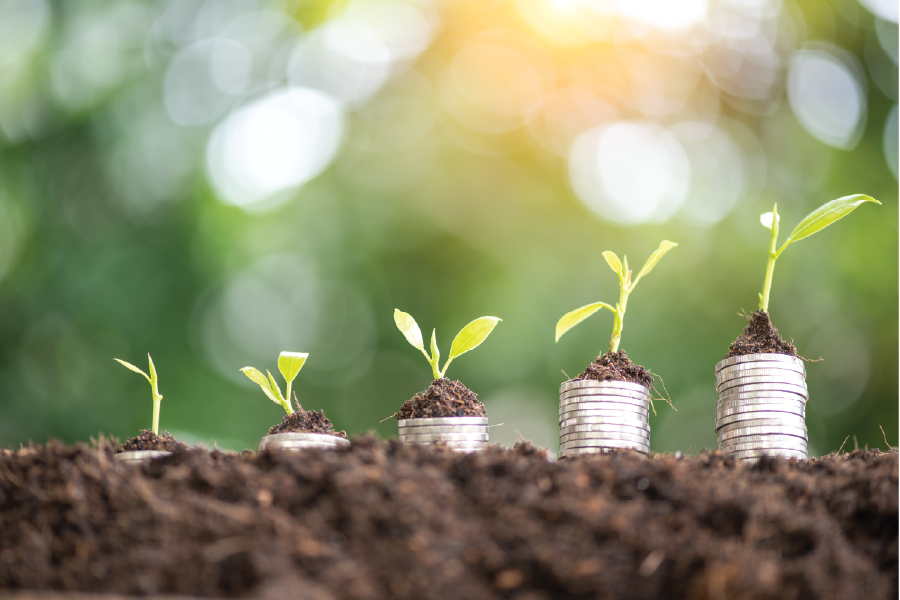Digital Marketing
Resources

Economic Sustainability: Ensuring Your Business Survives the Long Run
If 2020 has taught us anything, it’s that you can’t predict the future. When you’re running a business, you’ve got an eye on the future, and you’re constantly thinking about how to move your business forward and generate growth. But when the future is so unpredictable, how do you achieve business longevity?
To prepare your business for success in the long term, you need to build a sustainable business model into the foundation of your business. Keep reading to learn more how to create long term value by taking into consideration how your business operates in the current ecological, social and economic environment.
What is Economic Sustainability?
By definition, sustainability refers to the ability to maintain something at a certain rate or level. Economic sustainability then, refers to the ability to generate value without being a drain on the resources that help create it.
Economic sustainability also has ties with sustainability in the broader sense, in that many of the steps you take to be more environmentally sustainable or socially sustainable will come with economic benefits. In fact, an energy efficient office spends about 20% less on their energy bills. Rather than taking, a sustainable business “borrows” resources – promoting responsible consumption.
Why Economic Sustainability is Important For Your Business
A focus on sustainability allows you to really dig deep into your overall business functions, to identify where you are wasting time, effort and money. Even if adjusting one business function only saves a small amount of resources in the short term, when you’re looking towards the future, every small amount saved adds up.
To create sustainability within your business, start by developing a sustainable business strategy. Start by asking these questions of your business:
- Why does my business exist?
- What problem is it solving?
- How is it going to improve the society and environment it exists in?
Once you’ve understood the unique value of your business and its purpose, you can develop a sustainable strategy that incorporates not just the cash flow that makes your business profitable, but other resources both tangible and intangible that your business uses to function.
From there you can engage your entire business, industry and customers to transparently share your sustainability goals, which can even be used as a selling point. A 2019 study showed that telling online shoppers that other people were buying eco-friendly products led to a 65% increase in making at least one sustainable purchase. More and more, customers are asking businesses about their sustainability practices, and the more open you are about it, the more likely your customers are to share that news with other people.
How To Make Your Business More Sustainable
To make your business more sustainable, you’re going to need to implement a sustainable business model. To start moving your business towards a more sustainable model, here are some tips to get started:
1) Plan out your resource usages
Start by making a list of all the raw materials you need to run your business. This can encompass everything from the materials required to make the product you sell, to the stationery you use in your office everyday.
- Consider where your materials are sourced from, whether they are responsibly sourced, and who makes a profit from selling them.
- Understand the full picture of how your resources get to you, as in, how far do they travel to arrive at your warehouse? Is it possible to source these resources more locally?
- Which of your manufacturing processes are the most wasteful? Think about ways you can mitigate any waste created during your production process.
- Are you packaging your products in an environmentally friendly way?
- What resources are the riskiest, and how can you increase productivity whilst lessening your dependence on them?
2) Invest in Research and Development
There might be a better way to do business, but you just don’t know what that looks like yet. Investing in Research and Development to improve your products and services may seem like a costly activity with no short term return on investment, but will produce the most fruitful insights for long term gain.
3) Engage your customers
Focusing on sustainability can often result in higher prices for your customers, but that’s okay, especially as consumers are becoming more and more aware of the environmental impacts of their own consumerism. Involving your customers in your own discussions around sustainability is a great way to make them feel more invested in your business and encourage them to become evangelists for your brand.
What Does Sustainability Do For Your Business?
- It allows you to create something of lasting value, supporting your vision of having continued business success into future decade.
- It makes your business more attractive to customers, employees and stakeholders, who want to engage with businesses that are thinking beyond the bottom line.
- It benefits the environment and society around the business, making a lasting positive change.
Adopting sustainable behaviours encourages other people to make other positive changes, so don't underestimate the power your business has to make a difference for the better. If you're thinking about taking your business in a more digital direction but aren't sure where to start, talk to one of our Marketing Experts today.